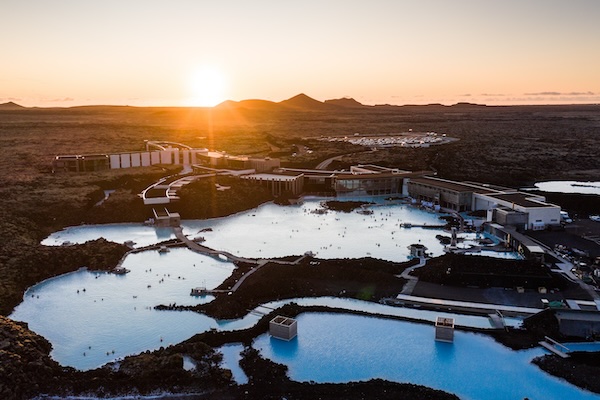Iceland’s Blue Lagoon, a famous geothermal spa, has been temporarily closed due to volcanic activity. Safety precautions have led to evacuations near the Sundhnuksgígar fissure.
The closure marks another disruption since the Reykjanes peninsula began experiencing eruptions. The focus remains on visitor and staff safety amidst these natural events.
Impact of Recent Eruptions on Blue Lagoon
The Blue Lagoon, a hallmark of Iceland’s natural beauty and a major tourist attraction, has been closed once again due to recent volcanic activity. This closure follows a series of eruptions on the Reykjanes peninsula, which commenced in December. Officials have emphasised the importance of safety, prompting evacuations in the nearby town of Grindavik.
The decision to close the lagoon has not been taken lightly. Currently, the attraction’s management is prioritising the safety of its visitors and staff. This approach ensures precautionary measures are in place while closely liaising with Icelandic authorities.
Details of the Volcanic Eruptions
Recent eruptions have opened up a new fissure near Sundhnuksgígar, creating a dramatic display of molten rock and ash. The Icelandic Met Office reports considerable lava flow, with the fissure stretching approximately 2.4 kilometres. These eruptions have become a recurring environmental challenge for the region.
The extent of volcanic activity has raised concerns over gas emissions. Authorities have issued alerts concerning the potential for gas pollution, especially with changing wind directions that could impact the capital, Reykjavik.
Precautionary Measures Undertaken
In response to the volcanic eruptions, the Blue Lagoon has extended its closure until at least May 31. This extension allows time for a thorough assessment of the situation, ensuring that all necessary safety protocols are adhered to.
The management of Blue Lagoon is maintaining communication with guests holding bookings during the closure, affirming that guest safety remains paramount. There is a commitment to enhance safety processes continuously.
Authorities have enforced road closures to Grindavik and surrounding areas. Additionally, the Foreign Office has advised against travel to the affected regions, underlining that the likelihood of further eruptions remains high.
Airport and Travel Advisory
Despite the ongoing volcanic activity, Keflavík Airport has continued operations without disruption. Travellers, however, are advised to stay informed of the latest flight information due to potential changes influenced by the volcanic events. This proactive approach by the airport ensures passenger safety while maintaining essential travel connectivity.
The travel advice disseminated by the authorities highlights the natural volatility of Iceland’s landscape. It underscores the need for travellers to adhere to guidance from Icelandic authorities. This advice reflects the unpredictability of volcanic and seismic activities in the region.
Community and Economic Impact
The frequent closures of the Blue Lagoon due to eruptions have significant implications for local tourism and the broader Icelandic economy. The attraction draws thousands of visitors annually, contributing substantially to the local economy.
Businesses in Grindavik and surrounding areas face disruptions, with local communities heavily reliant on tourism. The volatility of the volcanoes introduces a degree of uncertainty, posing potential challenges for consistent economic stability.
Efforts to mitigate the economic repercussions include promoting unaffected attractions. This strategy aims to balance safety with sustaining tourism, crucial for local resilience.
Future Prospects and Management Strategies
The management team at the Blue Lagoon remains optimistic amid natural challenges, striving to enhance visitor experiences and safety. Collaborative efforts with governmental and environmental bodies are ongoing, aimed at developing comprehensive management strategies for future eruptions.
Emphasising adaptability, Blue Lagoon’s management is exploring alternative attractions and experiences within Iceland that tourists can enjoy during closures. This initiative seeks to diversify the tourism portfolio.
The ongoing dialogue with stakeholders underscores a commitment to resilience and innovation in the face of environmental challenges.
Authorities’ Continued Vigilance
Icelandic authorities remain vigilant, continuously monitoring seismic activities. Their expertise guides public safety measures and provides real-time updates to mitigate risks associated with volcanic eruptions.
The ongoing eruptions near Iceland’s Blue Lagoon highlight the unpredictable nature of volcanic activity.
Authorities continue to prioritise public safety, showcasing resilience against environmental challenges.

